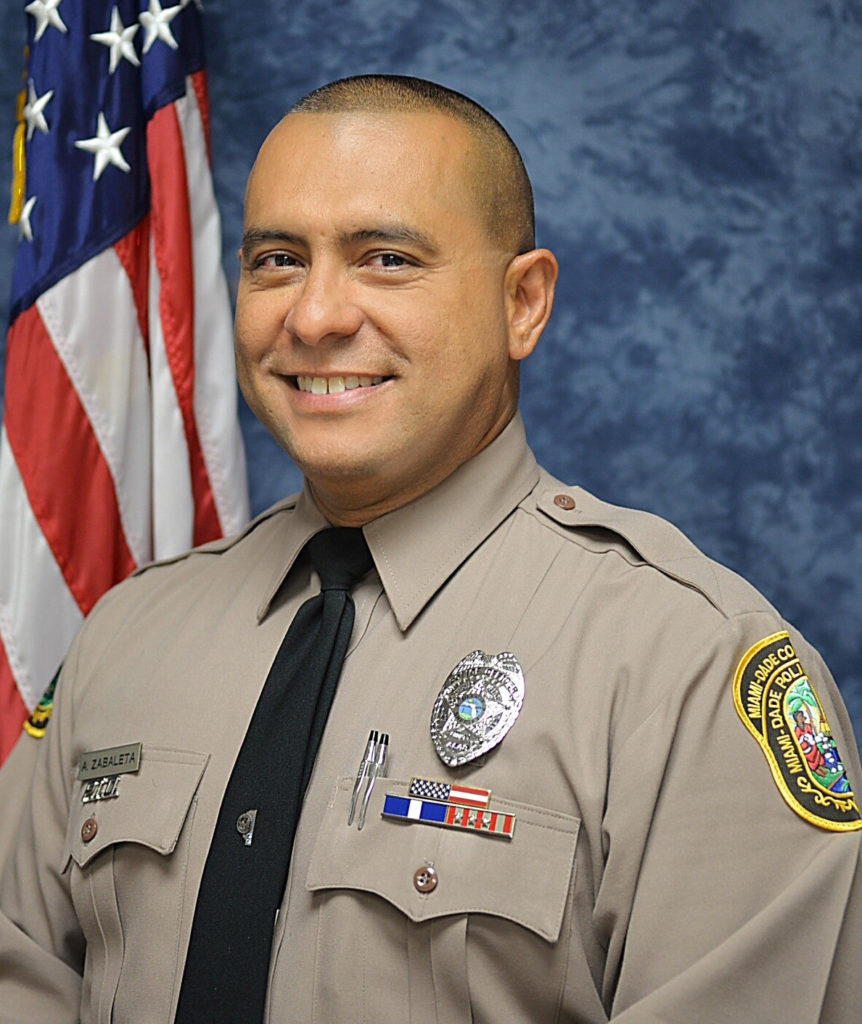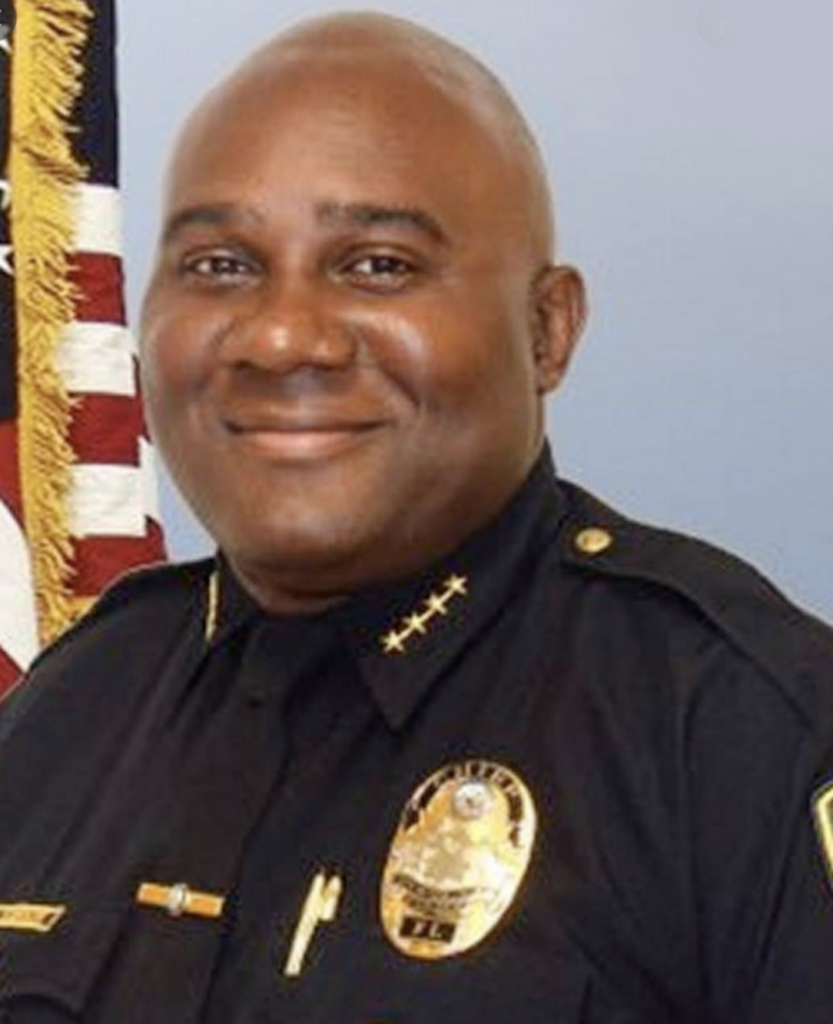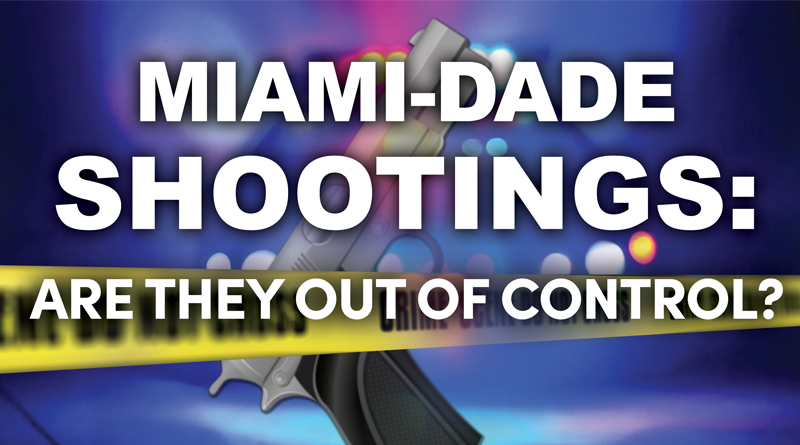Miami-Dade shootings: Are they out of control?
By: Diana Bello Aristizábal
This year, Miami-Dade residents have witnessed with concern the same scene repeat itself over and over again: An individual gets out of a vehicle, starts shooting at a place regardless of who is present, and continues driving, causing as much damage as possible. Drive-by shootings, the most common ones in the county, have set off the alarms in the community that is now questioning whether or not the problem is out of control.

“When shootings begin to affect innocent people like children, you have to put your hand up and stop the violence immediately,” says Álvaro Zabaleta, Public Information Officer for the Miami-Dade Police Department, about the approach the department took when shootings began to take the lives of children like 3-year-old Elijah LaFrance, shot at his birthday party.
Against this, arises the question: Is the story of Elijah as well as that of the 23 victims who suffered gunshot wounds outside a banquet hall in the north of the county due to a mass shooting, isolated cases?
Numbers gathered by the police suggest otherwise. Since 2019, there has been an increase of 100 shootings per year and as far as 2021 goes, this figure has already been exceeded. “It all started in 2019 and worsened with the pandemic,” explains Zabaleta.
2020 became the trigger year when violence spread to social media during lockdowns. At that time, several individuals who knew each other in person exchanged insults over the Internet that ended in mass shootings when they decided to get back at those who offended them, taking innocent lives with their actions.
So contrary to popular belief, the problem is not related with gangs. Although there are several in the county, they aren’t so many in numbers and are unrelated to the shootings that the community has suffered because gangs act for financial purposes while shootings have occurred as a reckoning.
But in addition to the above, there are other circumstances that could have worsened the problem, such as racism-related events that the country has faced as well as the loss of trust in law institutions.
“Throughout history, we have always seen that no matter which side of the law people are on, everyone respects the police, but now many have lost respect for law and order,” says retired Police Chief, James Dobson.
This situation has incited gun violence, not by those who buy them legally but by those who do so by illegal means. “They are the ones we have to worry about. Law-abiding citizens that have the right to purchase a firearm from an authorized dealer are not the problem,” clarifies Dobson.
In this way, he thinks the main cause of the increase in shootings is not the easy access people have to firearms. “Those who buy a gun have to undergo a criminal history background check and that takes a few days. I can guarantee that none of the perpetrators of the Miami-Dade shootings had permission or entered an authorized store,” he says.
So, could it be said that the situation is out of control? According to Zabaleta, while we were certainly on our way to get there, the department’s numbers don’t compare to those seen in places like Chicago or California that have much higher gun crime rates.
“Compared to previous years, we did see a noticeable increase in gun violence that caused us alarm. So we had to do something before the situation started to get out of control,” says Zabaleta.
Dobson believes that although there have been a significant number of shootings in the county, the situation is not out of control. “There have been a lot of shootings in a very short time frame and this is what made everyone feel unsafe. However, out of control would mean that there is no plan to end this and that is not the case.”
The plan of attack
Given the concern that lies in the streets and in order to prevent the problem from escalating, the police created the Operation Summer Heat and Peace and Prosperity initiatives. The first, which began on June 3, it’s an operation in which the approximately 37 county police agencies came together to exchange information that could facilitate the task of identifying suspects and criminals.
Operation Summer Heat also has state and federal support in order to be able to track criminals out of state. “We have all the local, state and federal agencies working together in addition to the federal prosecutor, the one from Miami-Dade county, and the government and the mayor’s office,” explains Zabaleta who confirmed that as of June 23, 1,107 arrests had been made in the county under this operation.

On the other hand, 284 illegal firearms have also been confiscated and it is expected that by the end of the program, which lasts 12 weeks and ends in October, 500 weapons will have been confiscated and 5,000 arrests made.
In this regard, James Dobson thinks that what is being done now is exactly what should be done. “Most criminals don’t want to go to jail so the fact that they feel that pressure from the law will make their illegal activities more difficult and this will definitely decrease shootings.”
As for Peace and prosperity, it is an initiative that seeks to provide recreation and work opportunities for the youth in order to prevent leisure from leading to crimes.
On the other hand, the work of the police is also focusing on virtual environments. For this reason, in addition to increasing traditional police efforts, the cyber crimes unit has also been expanded with the aim of identifying suspects on the web and preventing possible retaliations.
But in all this plan perhaps the most important component is the community one. “The community could not be taken out of that formula because it is the people who provide us with information anonymously. Now citizens are more involved and that helps with our operation,” says Zabaleta.
So, the recommendation is to have a more active role in the community, understanding that without us citizens, the work of the police turns out to be more difficult. “I believe that people should go about their normal life without fear because the shootings are going to decrease but they definitely have to be aware of their surroundings and if they hear something, they should say something,” advises Dobson.
The community speaks
Although the police recommendation is clear about trusting the law, avoiding panic, and continuing to provide information, what do people believe are the most viable solutions to address this problem?
Camila Toro says that as a mother she is concerned about how easily a person can obtain a firearm. “I think this should be controlled much more. Only those who really need them to protect themselves or those who work in related fields should buy weapons,” she says.
Rafael Duran has a similar opinion. “Although most people agree that certain individuals should not own weapons, due to the fact that this is a such a politicized issue we cannot pass laws on this,” he says.
In his opinion, this also has to do with the little importance given to mental health. “Many people with mental health issues have easy access to firearms, but we have not begun to address this situation, it has not even been normalized going to therapy. Doing so would help to have healthier human beings and this should be conducted from childhood. This way we would have fewer shootings.”
Odalys Quevedo, from her perspective as a mother and a psychologist, thinks there should be more community programs educating people about handling guns. “When I was little, the police would come to my school and talk to us about why not using drugs. They should do the same but with regard to firearms by teaching not to touch them or to speak up if they see something unusual and thus prevent further violence.”
She believes that this should be done from an early age. “We have to tell children that guns are not to play, how to deal with a situation where there is a shooter, or what to do if someone is shot. It is sad that we have to talk about this but this can help in many ways and be extended to adults.”


“When shootings begin to affect innocent people like children, you have to put your hand up and stop the violence immediately,” says Álvaro Zabaleta, Public Information Officer for the Miami-Dade Police Department’
Agree but so does reckless driving , drivers who text while driving right in front of police and that is ignored by the police in ALL of Miami .
I suspect one’s chances of being hurt or worse in a vehicle accident by reckless / distracted drivers are way higher then being shot , WAY WAY HIGHER .
Everyone knows “who” are the problem. But the moment LEOs do what they are trained to do, the word ” discrimination” is brough up by certain organizations and a sensationalistic media. Vociferous local leaders seem more concerned about their own re election instead of grabbing the bull by the horns and getting rid of gang related crimes for good. The drug war shootings from the 80s are a puppy walk compared to what’s happening today in the same city. Federal intervention may well be the key here.
Pingback: Hoax calls of school shootings disrupted classes in South Florida